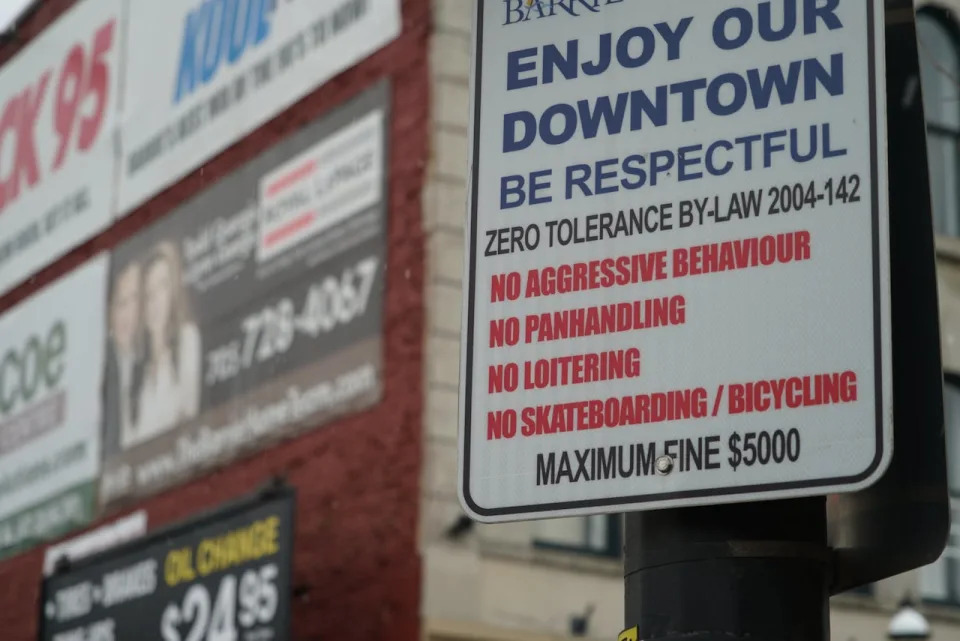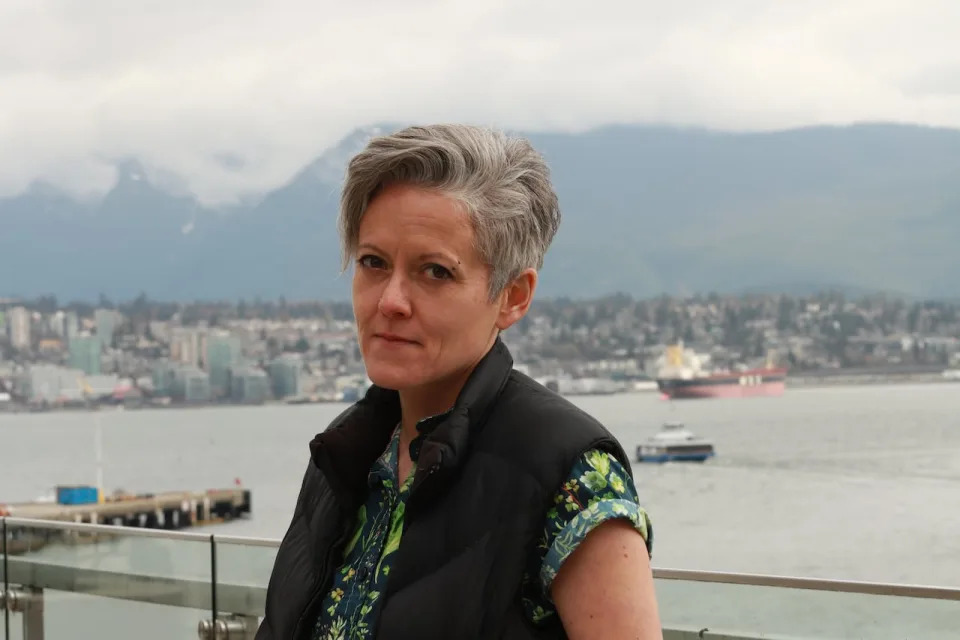ONTARIO
Barrie wanted to ban donations to homeless people on its property. Advocates are sending the plan to the UNCBC
Sun, September 24, 2023

Alex Nuttall, the city's mayor, said city hall is
A coalition of advocacy organizations is taking a previously proposed Barrie bylaw amendment to the United Nations as an example of a policy that criminalizes homelessness in Canada.
In May and June, the city north of Toronto proposed and then walked back two bylaw amendments that would have made it illegal for people and charitable groups to distribute food, literature, clothes, tents and tarps to unhoused people on public property.
The proposal was sent back to staff for review in June but was discussed again at a community safety committee meeting on Tuesday. A date for another council vote on the bylaw has yet to be set.
After Tuesday's meeting, the Canadian Drug Policy Coalition and Pivot Legal society sent the proposed bylaw amendments to the UN's rapporteurs on the right to adequate housing and extreme poverty. The intergovernmental agency has put out a call for laws impacting unhoused people for a report on decriminalizing homelessness, with a submission deadline of early October.
The proposed amendments were shared along with several other policy examples from British Columbia.
"We're very concerned about the direction that the city [of Barrie] is taking and so we thought it was important to raise alongside a number of other bylaws across the country for consideration and context for the United Nations analysis," said DJ Larkin, the executive director of the drug policy coalition.

DJ Larkin, executive director of the Canadian Drug Policy Coalition, said Barrie's proposal stood out as a particularly bad example of the potential criminalization of people who are unhoused in Canada.
DJ Larkin, executive director of the Canadian Drug Policy Coalition, said Barrie's proposal stood out as a particularly bad example of the potential criminalization of people who are unhoused in Canada. (Submitted by DJ Larkin)
Alex Nuttall, the city's mayor, did not grant CBC Toronto with an interview for this story. In an email, he said city hall is "confused" as to why the organizations involved sent the proposals to the UN for examination.
"Council's intent was clear not to deter individual acts of kindness," he said.
In their report, the coalition says it's not aware of any substantive changes to the proposal. At Tuesday's meeting, city staff said council will have a revised proposal for the bylaws by the end of the calendar year.
When introduced, the proposed bylaw amendments also appeared to make it illegal for charitable organizations to provide supplies to unhoused people on city property. CBC Toronto asked Nuttall if there would still be restrictions on what charities do in the revised bylaw amendment proposals. Nuttall did not respond prior to publication.
Advocates want amendments rescinded entirely
The coalition's report to the UN was endorsed by Barrie Housing and Homelessness Justice Network, of which Michael Speers is a member. He says they'd ultimately like to see the proposed bylaw amendments rescinded.
"If they're determined to to go ahead with some type of bylaw [amendment], if they want to modernize the language, then we will be happy to submit language that is written through a human human rights lens," he said.
Speers was also critical of the city's current approach to the homelessness issue.
"They don't want to provide any real solutions that lift people up, they want to basically push people out," he said.

Michael Speers wants the city to rescind its proposed amendments instead of revising their language.
Michael Speers wants the city to rescind its proposed amendments instead of revising their language. (CBC)
Rob Romanek, chair of the civic engagement organization Engage Barrie, echoed Speers's calls for the proposals to be rescinded.
"To backpedal and say, 'No, that's not what we meant.' Well then take them out because that's what it says," Romanek said.
In response to criticism, the mayor said he's been "a longtime advocate for treatments and support for the community."
In a separate email, a city spokesperson said Barrie will spend at least $1.6 million on initiatives like a warming centre and food security programs over the next two years.
In preparing the coalition's report, Larkin said Barrie's proposal stood out as a particularly bad example of the criminalization of people who are unhoused.
"At the United Nations level, we are hoping to demonstrate how Canada's failure to address the overlapping crises of toxic drugs, homelessness and income insecurity are playing out on our streets," Larkin said.
No comments:
Post a Comment